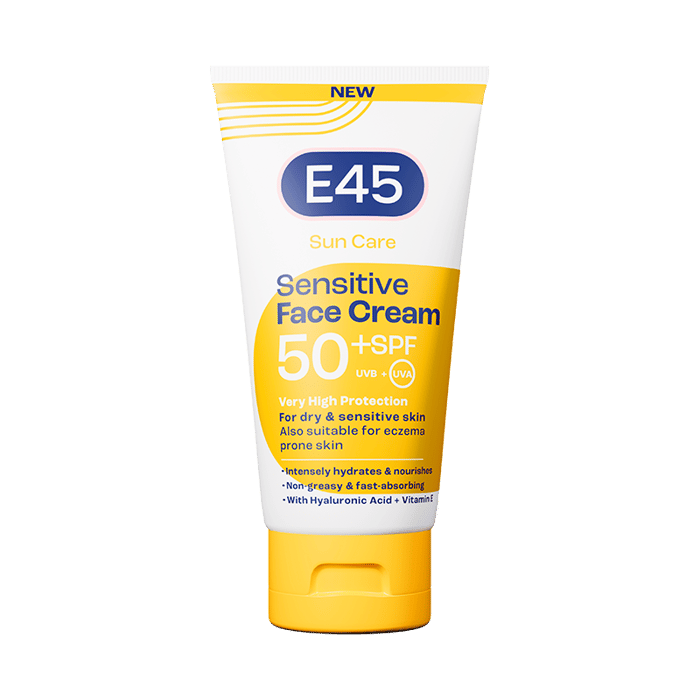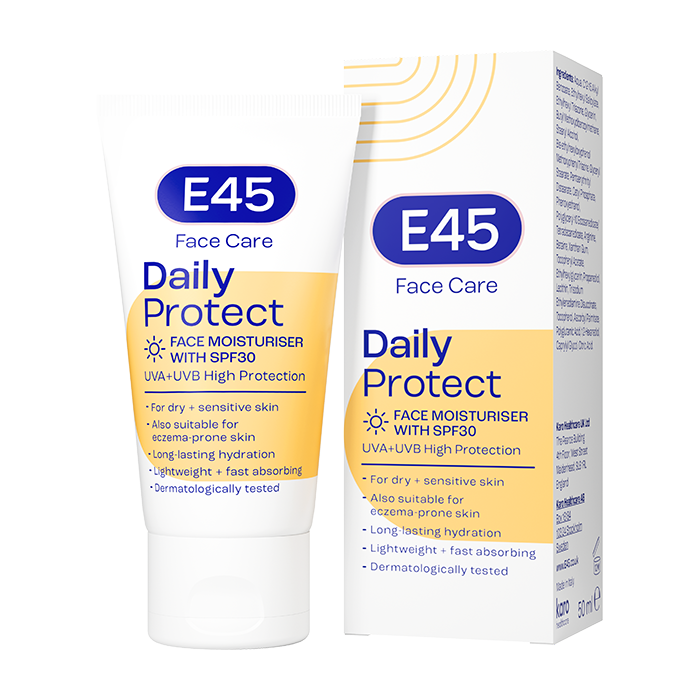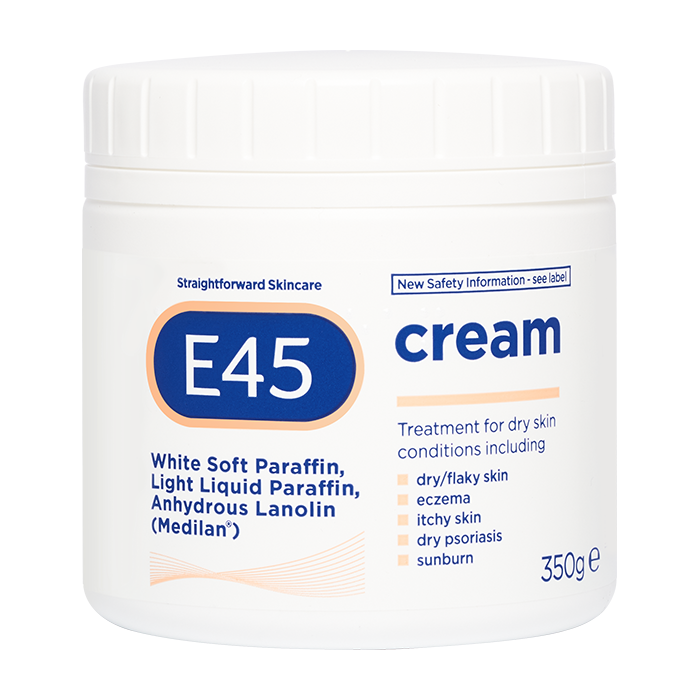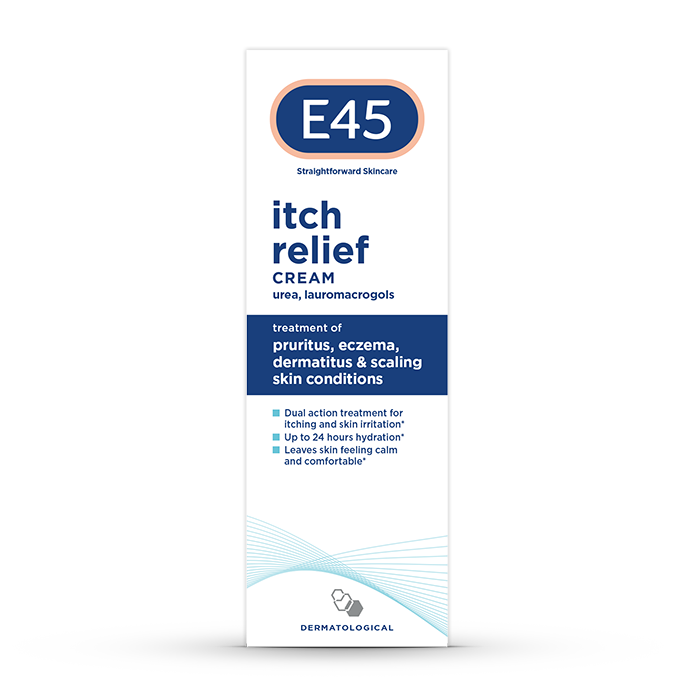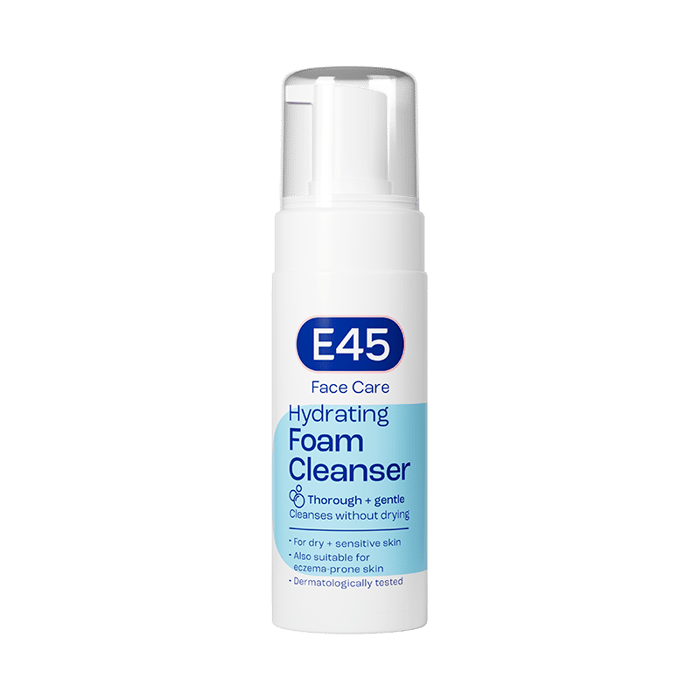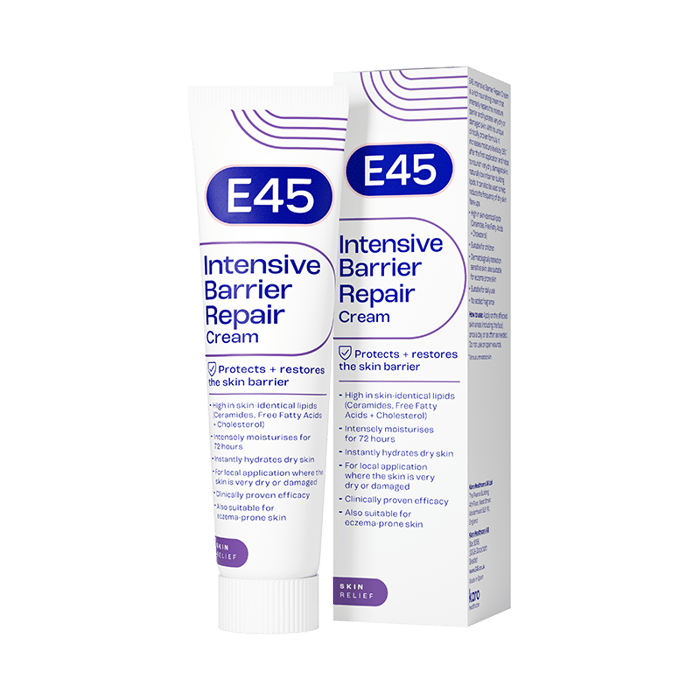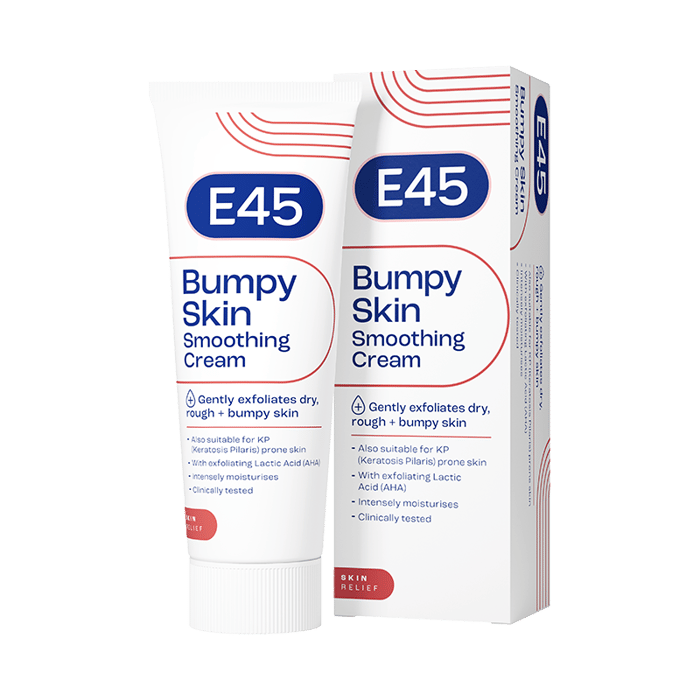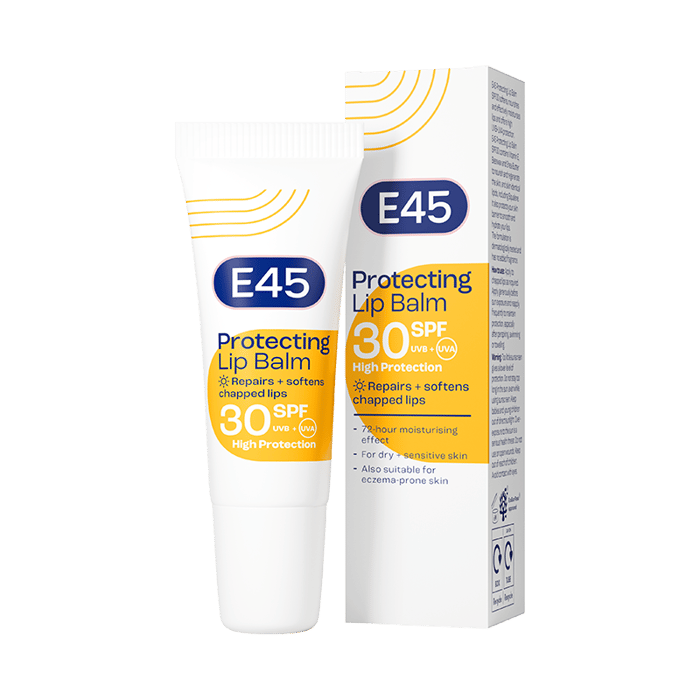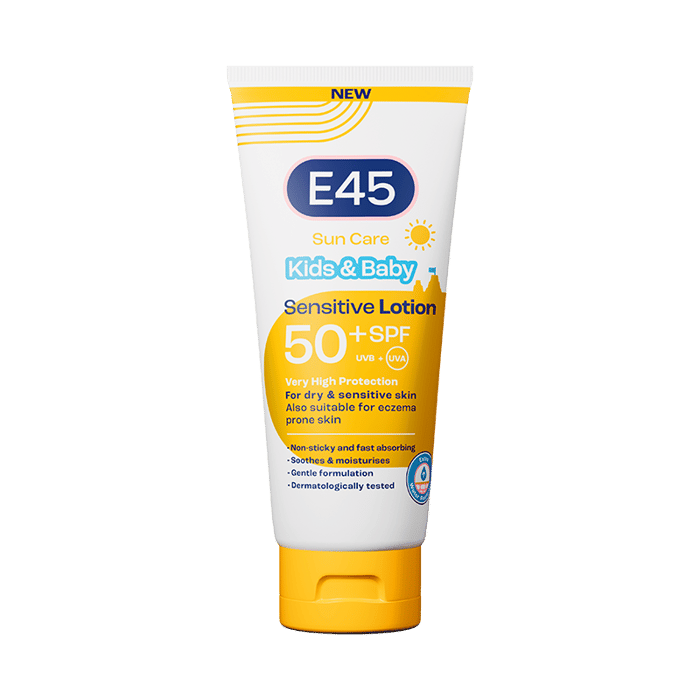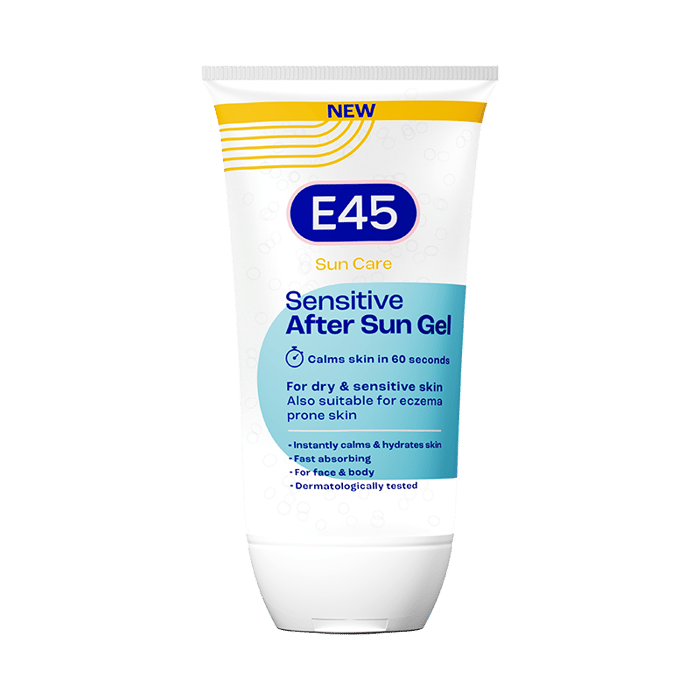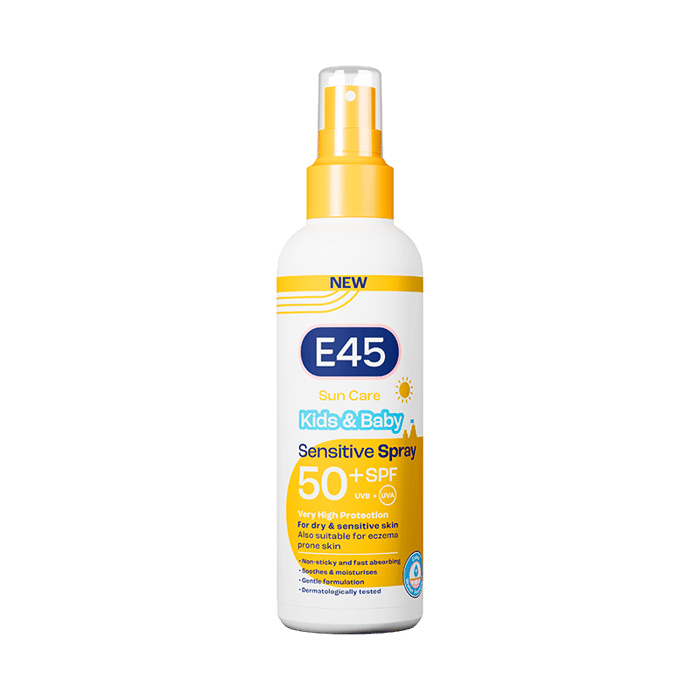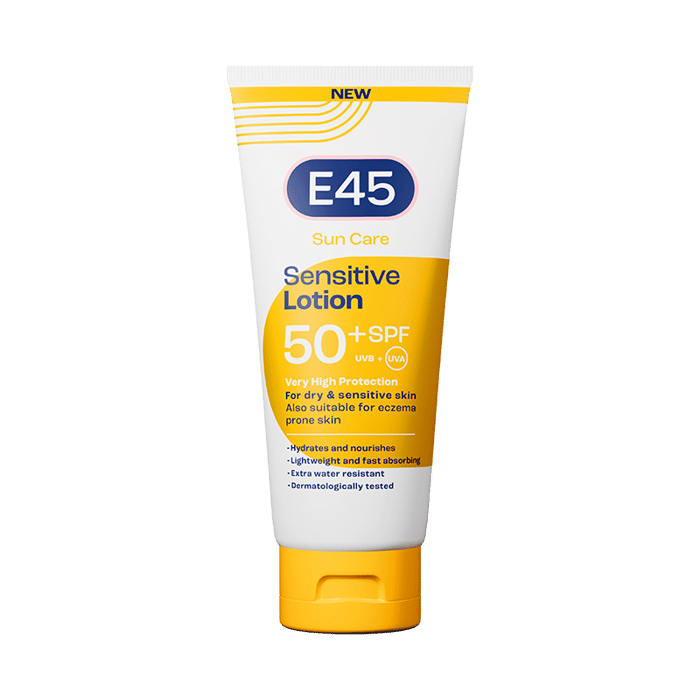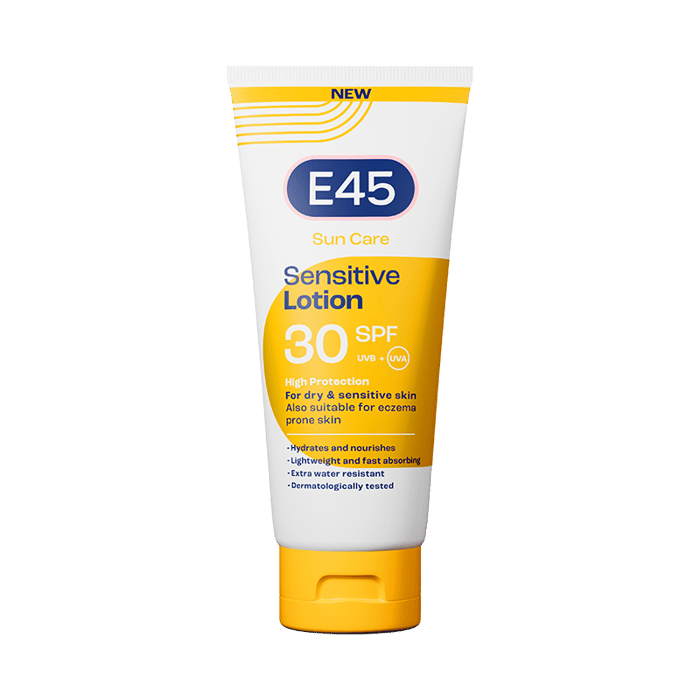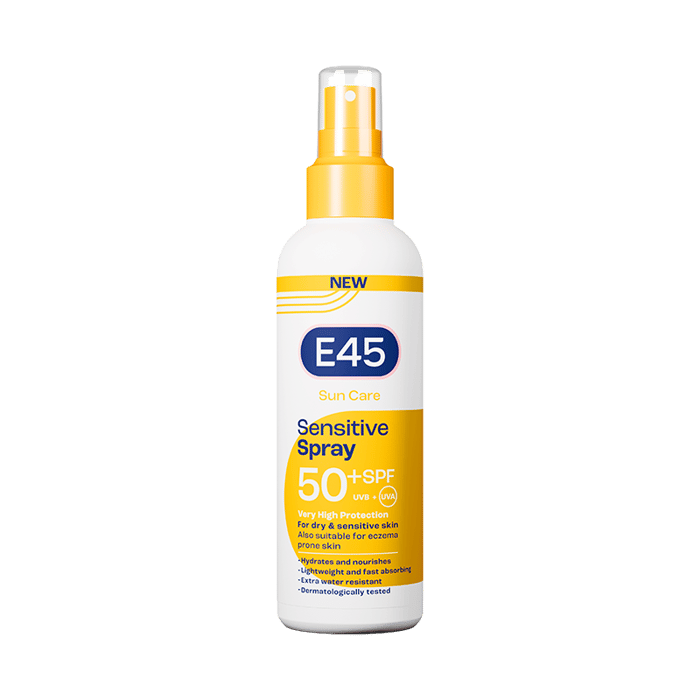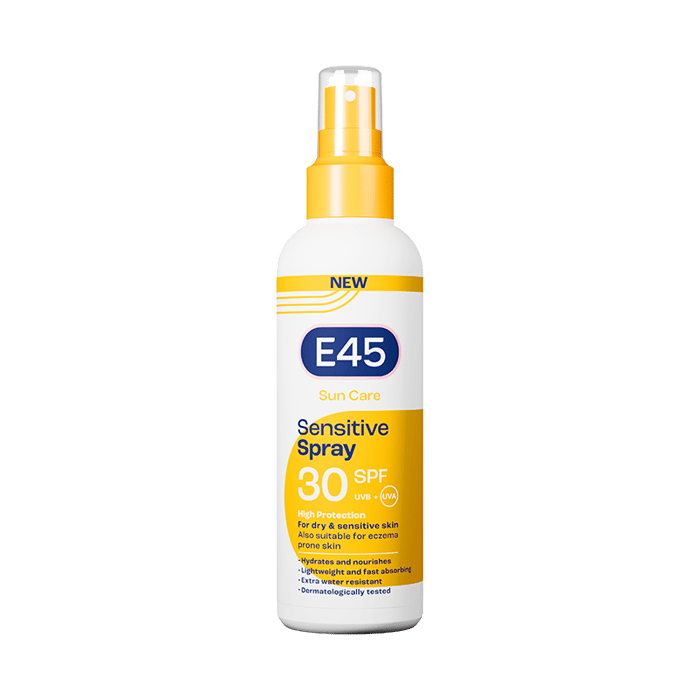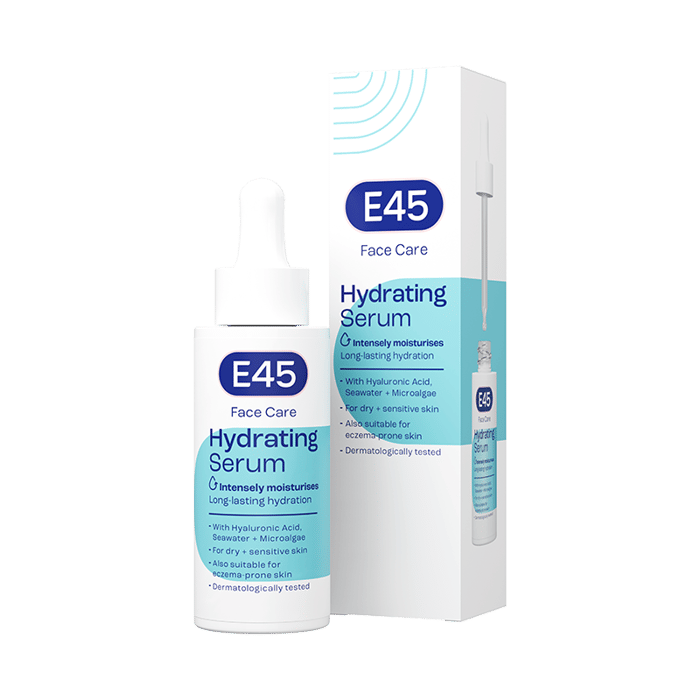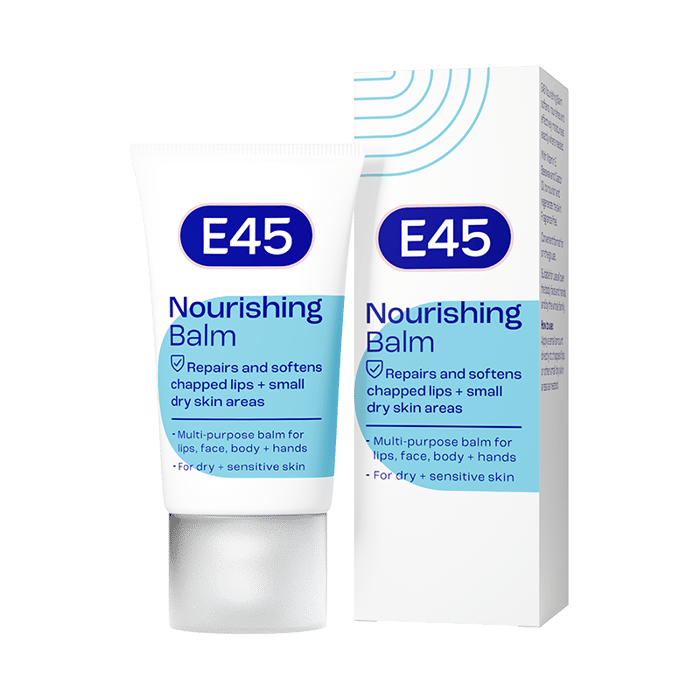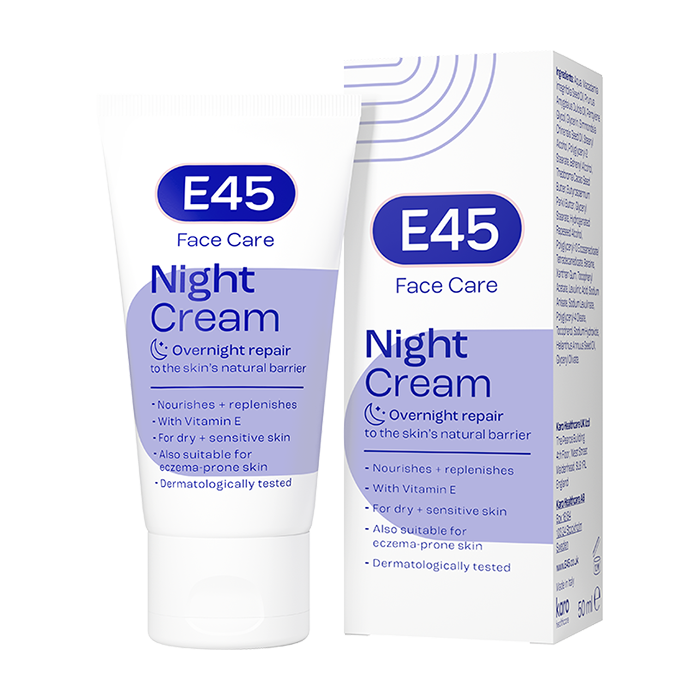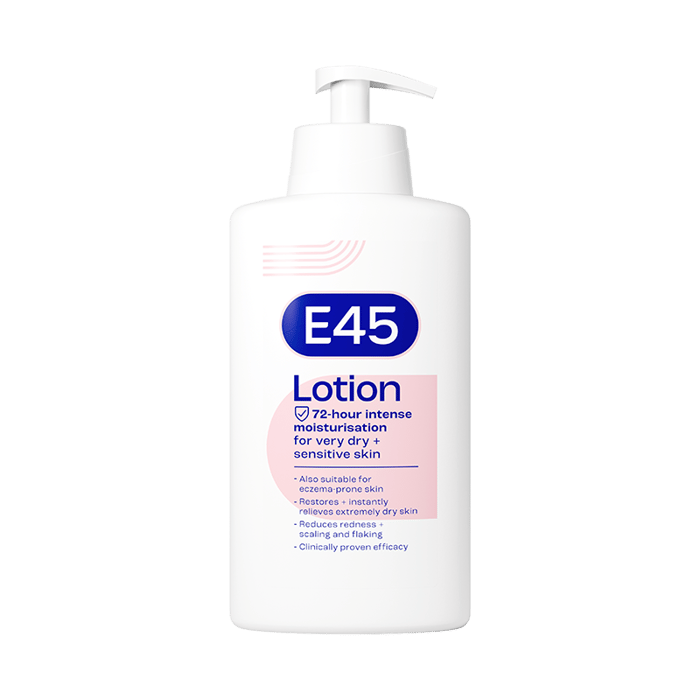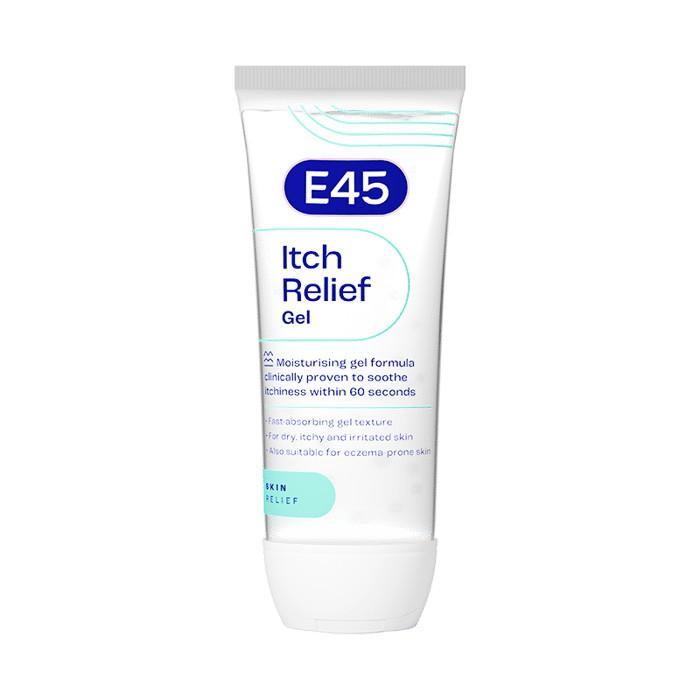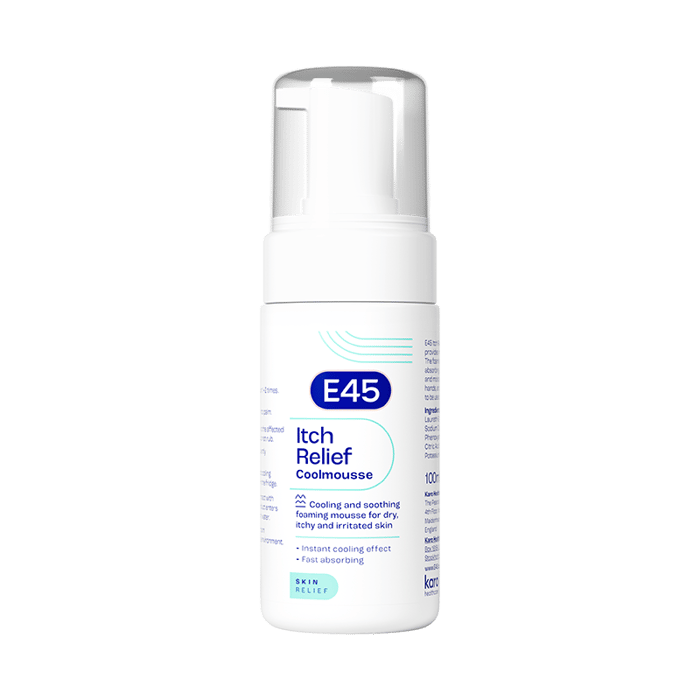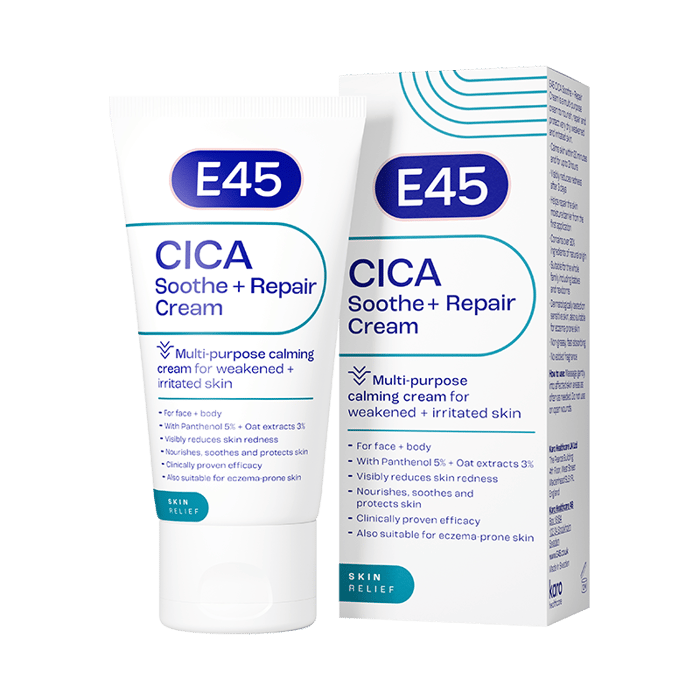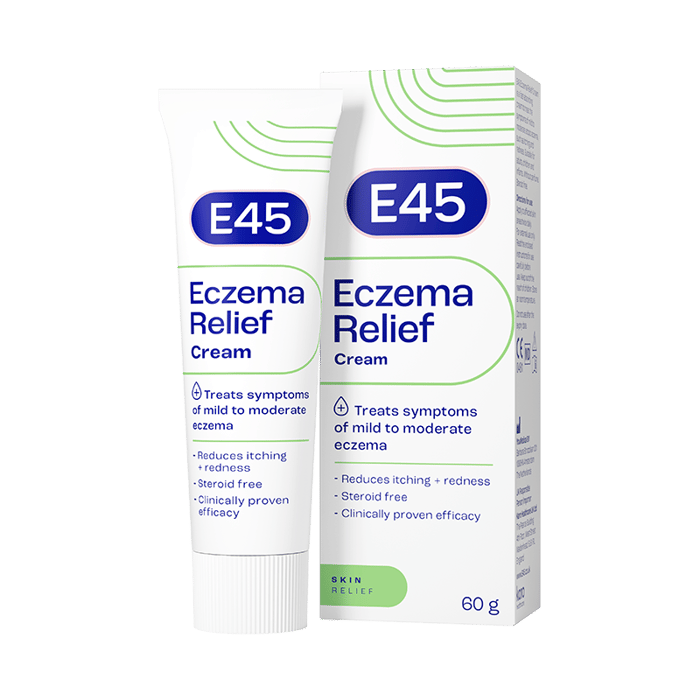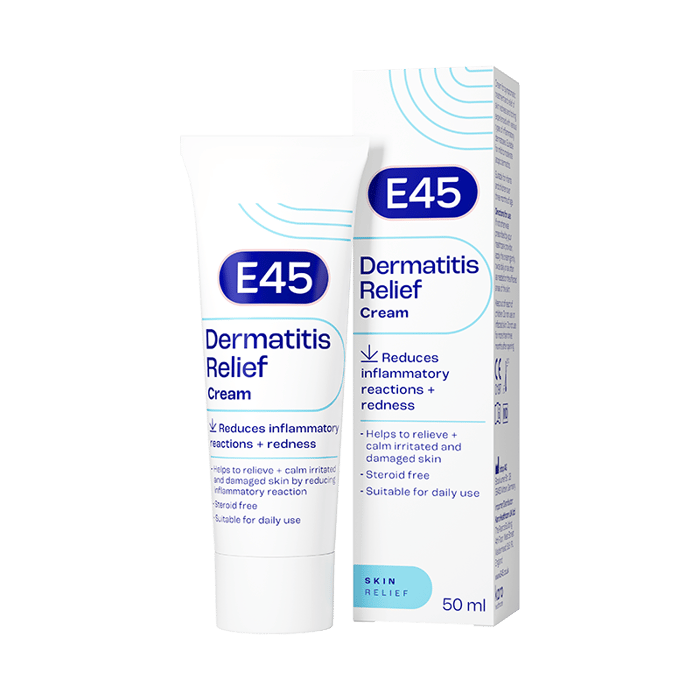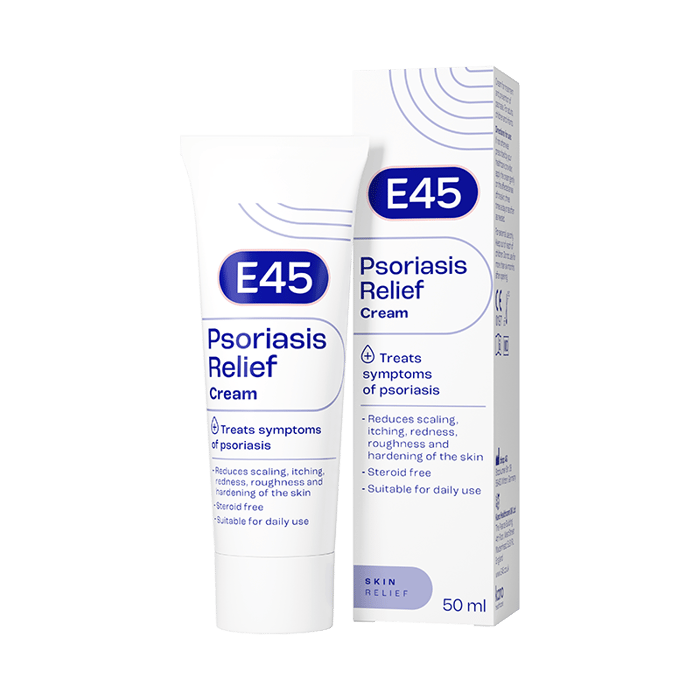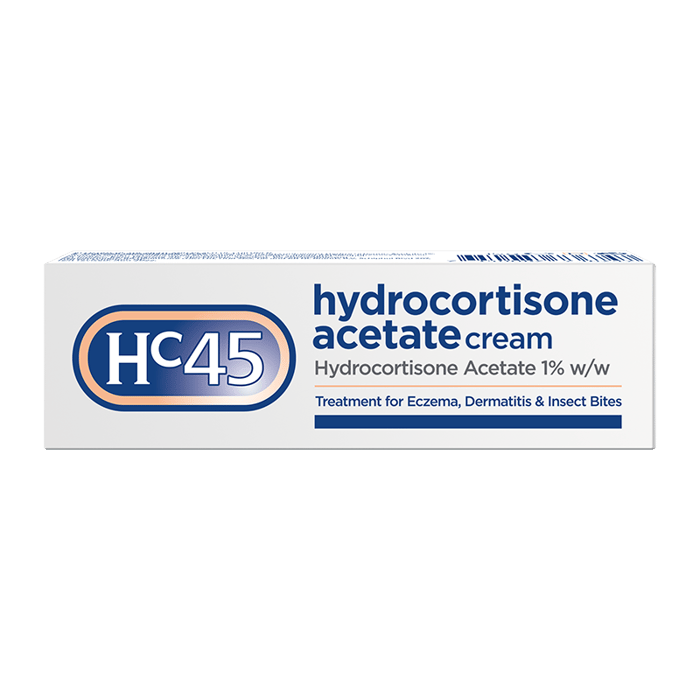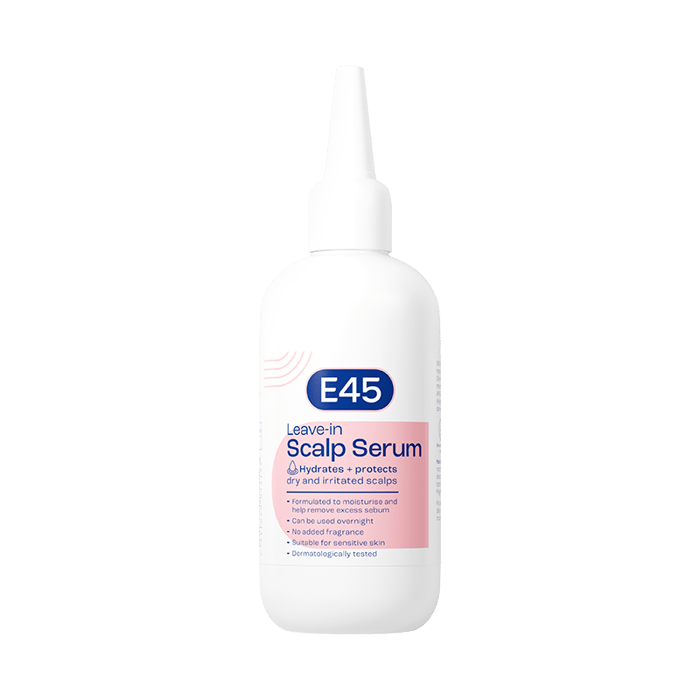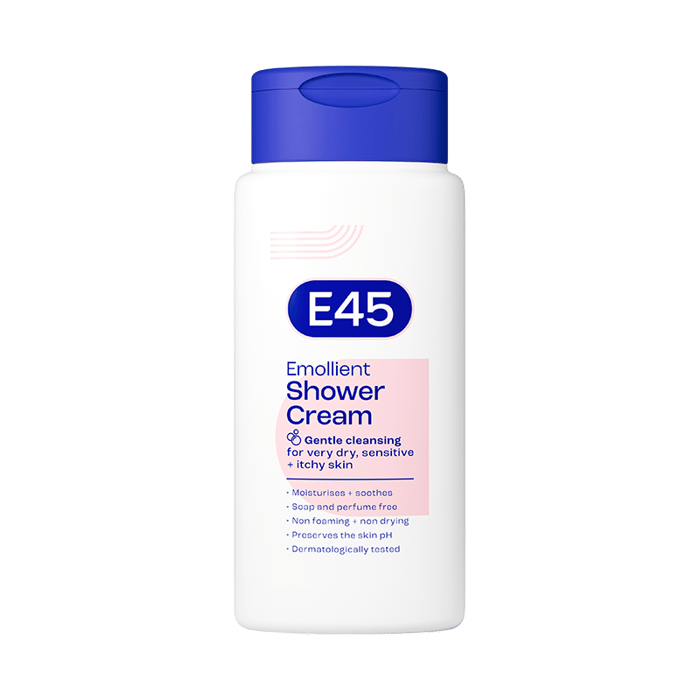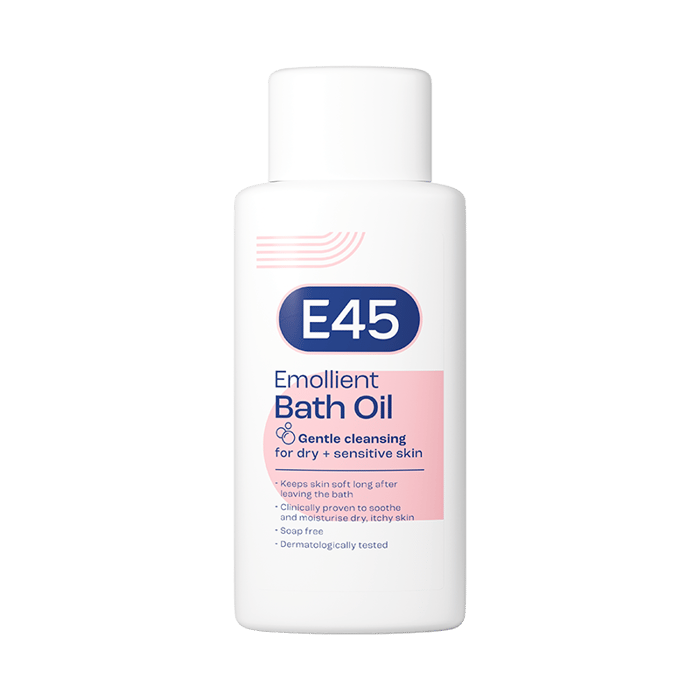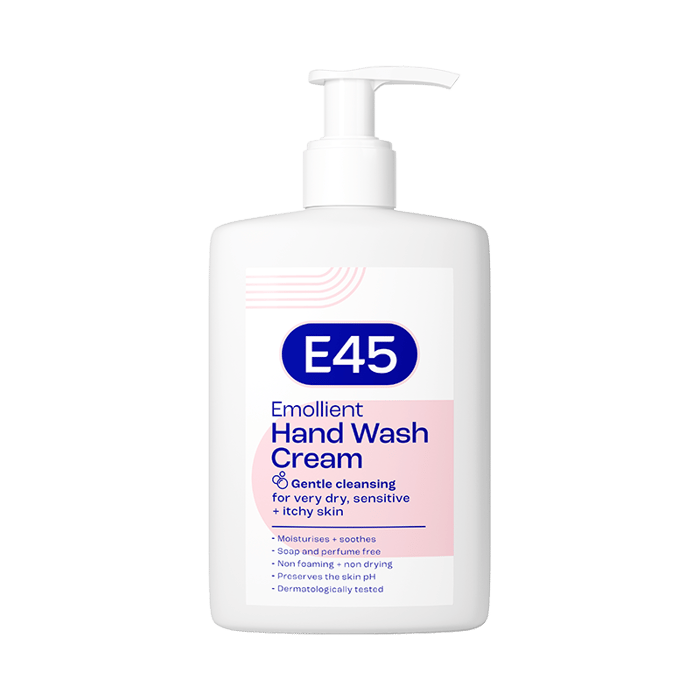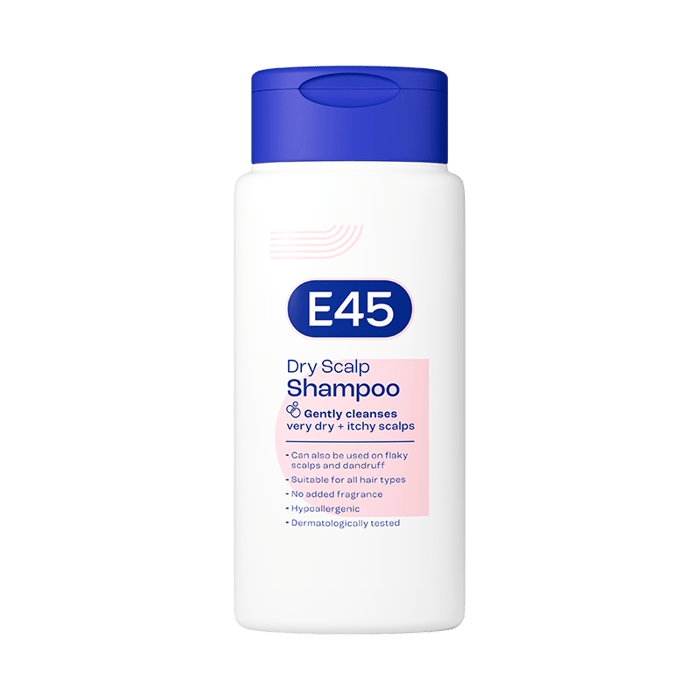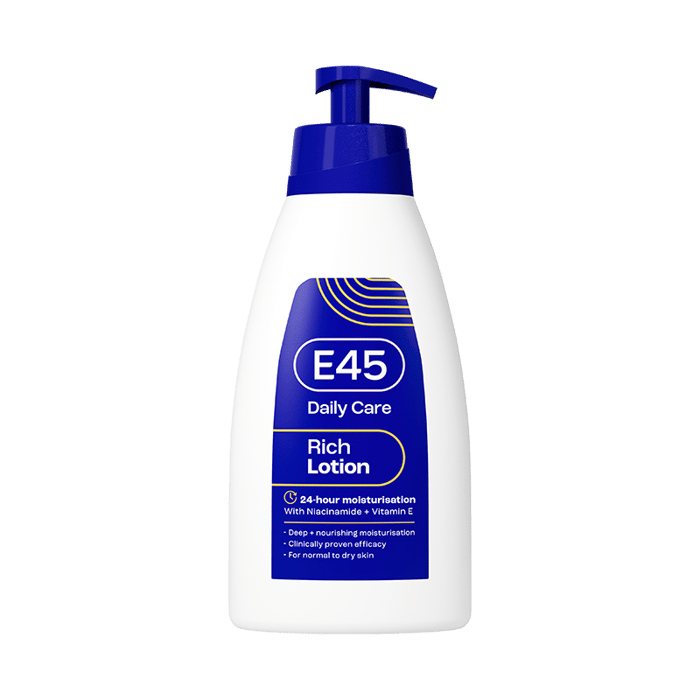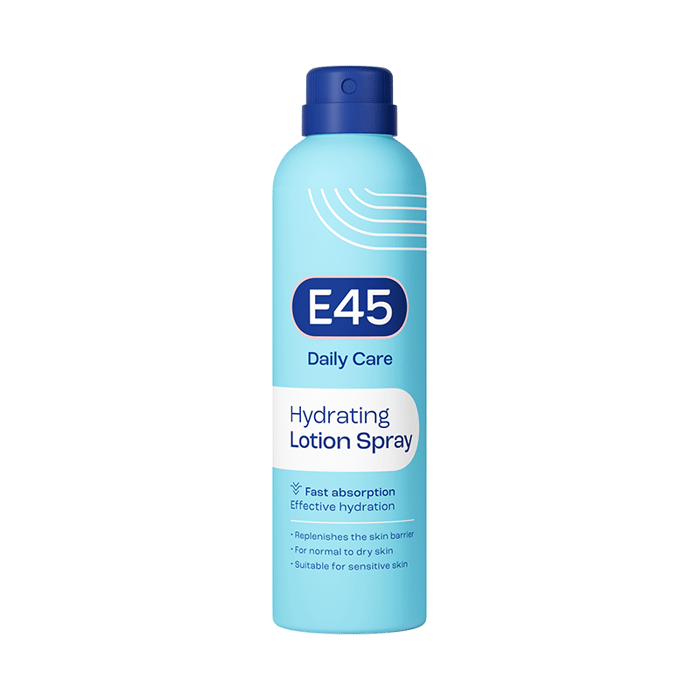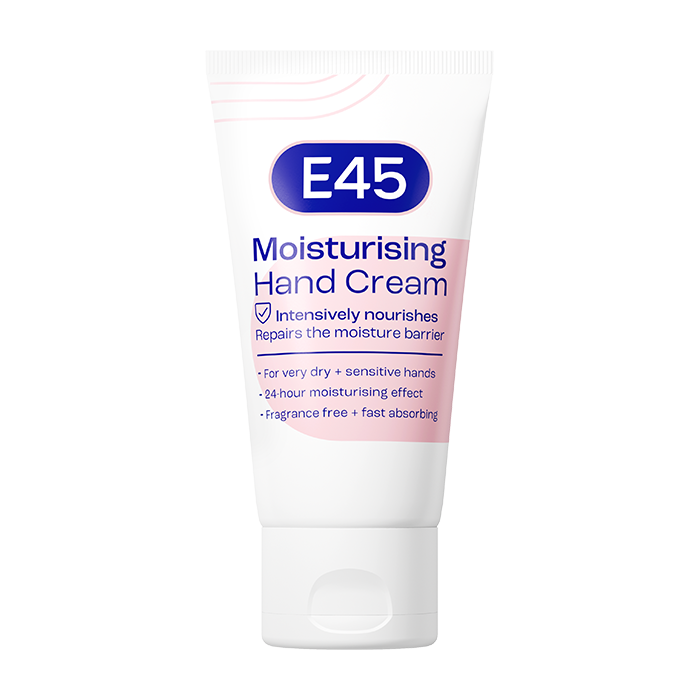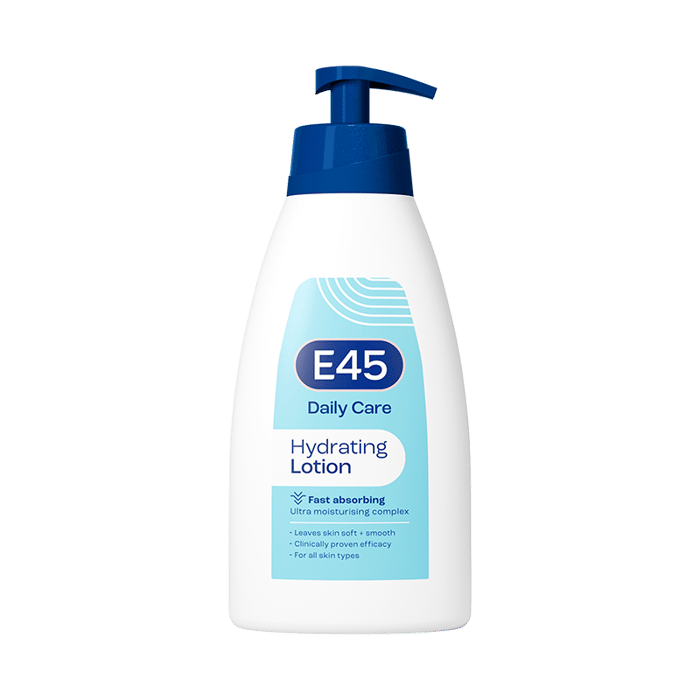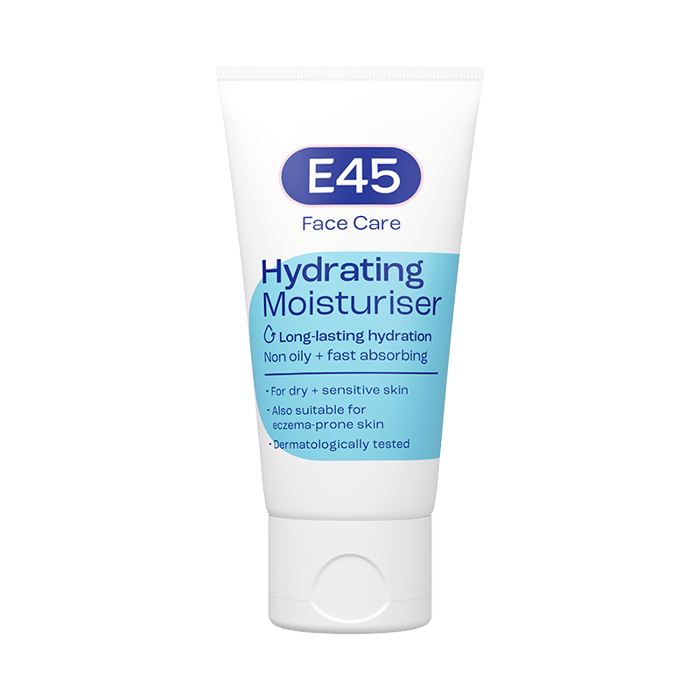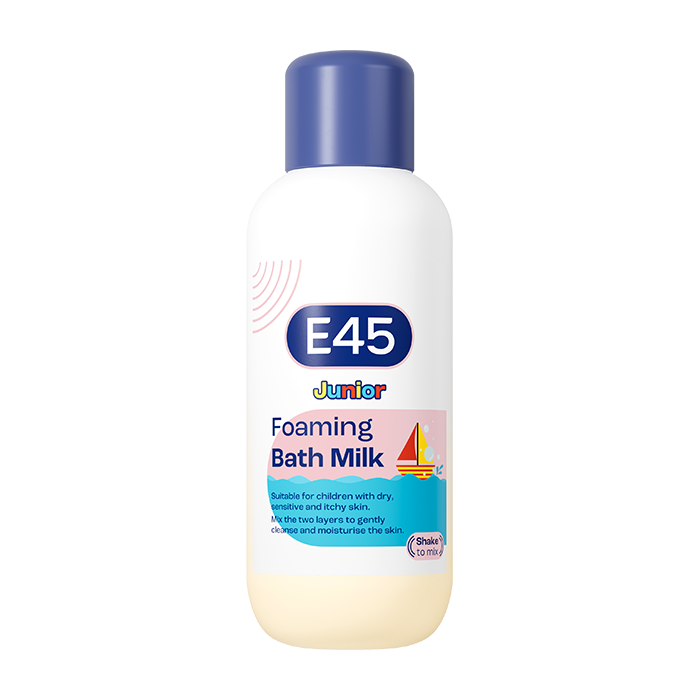Eczema on the face: Causes, symptoms & helpful treatment advice
Eczema on the face can be uncomfortable, sometimes making the skin feel dry, itchy, red, or sore. Because the skin on the face is thinner and more exposed than elsewhere, flare-ups here can feel especially difficult to manage. While there isn’t a cure, there are many ways to care for your skin, reduce irritation, and ease symptoms day-to-day.
What is eczema on the face?
Eczema in general isn’t just one condition but can appear in different forms. The most common is atopic eczema (atopic dermatitis), which often shows up on the cheeks, forehead, and around the eyes. It’s especially common in babies and children but can continue into adulthood. Flare-ups may be brought on by factors such as dry air, heat, pollen, or fragranced skincare products.
Other types of eczema can also affect the face. Allergic contact dermatitis happens when the skin reacts to certain ingredients in cosmetics or skincare. Irritant contact dermatitis develops from repeated exposure to soaps, detergents, or wipes. Another form, seborrhoeic dermatitis, tends to appear around the nose, eyebrows, and hairline, often causing redness and flaking. Finally, although less common, discoid eczema (nummular eczema) can sometimes appear on the face, showing as round, coin-shaped patches of inflamed, itchy skin.
Symptoms of facial eczema
Facial eczema can show up differently depending on your skin type and severity, but common symptoms include:
- Dry, flaky skin
- Intense itching and redness
- Burning or stinging sensations
- Swelling, especially of the eyelids
- Rough or cracked skin
- Small blisters that may weep or ooze
- Patches that may leave darker or lighter marks on different skin tones
In severe cases, the skin may bleed or become infected.
What causes eczema on the face?
Eczema happens when the skin barrier doesn’t work as well as it should, which makes the skin lose moisture more easily and react to triggers. The exact cause is a mix of genetics, immune response, and environment.
Some common triggers for eczema on the face include:
- Fragrances and preservatives in skincare or makeup
- Harsh soaps, cleansers, and detergents
- Changes in weather, temperature, or humidity
- Sweat and overheating
- Allergens such as pollen or pet dander
- Stress, which can make flare-ups worse
How to get rid of eczema on the face and manage flare-ups
While eczema on the face can’t be cured permanently, many people find they can manage symptoms and reduce flare-ups with the right daily care. Because facial skin is sensitive and more exposed than other areas, gentle routines and the right products make a real difference.
Daily skincare and prevention
- Moisturise regularly: Hydration is key. Apply a gentle, fragrance-free emollient or cream at least twice a day, especially after cleansing. Applying moisturiser while the skin is still slightly damp can help lock in moisture. E45 Face Daily Protect is a hydrating facial cream for eczema-prone skin that helps preserve the skin’s natural barrier.
- Choose gentle cleansers: Use mild, fragrance-free cleansers designed for sensitive or eczema-prone skin such as E45 Face Foaming Cleanser. Avoid foaming soaps or scrubs that strip the skin.
- Check product labels: Fragrance, parabens, sulfates, and other harsh chemicals can make eczema worse. Opt for hypoallergenic, non-comedogenic options.
- Be careful with cleansing routines: Use lukewarm water rather than hot, and gently pat the skin dry with a soft towel instead of rubbing.
- Protect from the sun: Protecting your skin from sun exposure is important when managing eczema.Sunscreens formulated for sensitive and eczema-prone skin such as E45 Sun Care Sensitive Face Cream SPF 50+ can help protect against irritation. Wearing a wide-brimmed hat in strong sunlight also offers extra protection.
- Avoid known triggers: Keep track of anything that worsens your eczema, such as particular cosmetics, makeup removers, or environmental irritants like smoke or pollen.
Managing flare-ups
- At the first signs of a flare-up, increase your use of emollients. E45 Eczema Relief Cream and E45 Itch Relief Cream are two options that can be applied during eczema flares.
- Cool compresses can soothe burning or itching.
- Over-the-counter hydrocortisone cream may provide short-term relief — a pharmacist can guide you on safe use.
- If the skin becomes painful, swollen, or shows signs of infection (such as crusting or pus), it’s best to seek medical advice.
Special considerations: Baby eczema on the face
Baby eczema often starts in infancy, especially on the cheeks or forehead. Patches may look red and sore and can be irritated further by drooling, feeding, or wipes. Applying gentle, fragrance-free emollients such as E45 Cream regularly helps protect a baby’s skin and keep it comfortable.
Treatments and professional help
Severe or persistent cases of facial eczema may require medical treatments and professional help. If your symptoms don’t improve with daily care or if you notice signs of infection you should contact a dermatologist. Consultation with a dermatologist can help figure out the best course of action for your condition.
Coping emotionally with facial eczema
Living with eczema on the face can affect more than just your skin. Because flare-ups are visible, they may sometimes impact confidence, social life, and overall well-being. It’s important to recognise this and give yourself space to look after your emotional health as well as your skin.
Find emotional support
Connecting with others who understand what it’s like to have eczema on the face can be reassuring. Support groups, online communities, or counselling services give you a place to share experiences and learn how others cope with flare-ups in daily life.
Practice self-care
Simple activities that help you relax or boost self-esteem can ease some of the stress that comes with visible eczema. Stress is also a common trigger for flare-ups, so activities such as mindfulness, gentle exercise, or time spent on hobbies can help you feel calmer while also supporting your skin.
Although facial eczema can sometimes feel isolating, many people experience similar challenges. Reaching out to trusted friends, family, or support organisations can make a real difference to your well-being and help you feel less alone in managing flare-ups.
Conclusion
Eczema on the face can feel challenging, but with the right care it is possible to ease irritation, reduce flare-ups, and feel more comfortable in your skin. Gentle routines, from moisturising and cleansing to protecting against triggers, make a big difference day to day. When flare-ups do occur, simple steps such as using emollients more often or seeking advice from a pharmacist or healthcare professional can help bring relief.
It’s also important to remember that facial eczema doesn’t just affect the skin — it can have an impact on how you feel too. Looking after your emotional well-being, whether through stress management, self-care, or connecting with others, is another helpful part of living well with eczema.
While there isn’t a permanent cure, combining daily care with the right support means many people manage their facial eczema successfully and continue to enjoy a full and active life.
FAQ: Eczema on The Face
What causes eczema on the face?
Eczema on the face can be caused by a combination of factors, including genetics, a compromised skin barrier, immune system dysfunction, and environmental triggers. Certain allergens, irritants, and stressors can also contribute to the development or exacerbation of facial eczema.
How do you get rid of eczema on your face naturally?
While there is no cure for eczema, there are solutions to help manage and alleviate symptoms on the face. These include maintaining a consistent skincare routine with gentle cleansers and moisturisers, practicing stress management techniques, and avoiding known triggers such as harsh chemicals or allergens.
How long can face eczema last?
The duration of face eczema can vary from person to person. Mild flare-ups may resolve within a couple of days to a couple of weeks with proper care and treatment. However, more severe cases or chronic eczema may require longer-term management and can last for weeks or even months. It is important to consult with a healthcare professional for an exact diagnosis and personalised treatment plan.
Can stress cause eczema on the face?
Fragrance-free emollients are recommended. A GP or pharmacist may suggest mild topical treatments if needed.
How long does a flare-up of facial eczema last?
Flare-ups can last from a few days to several weeks, depending on severity and treatment.
How should I treat baby eczema on the face?
Gentle, fragrance-free emollients applied often can help. If symptoms worsen, a GP can advise further.
What is eczema herpeticum?
Eczema herpeticum is a rare but serious viral infection that can develop in eczema patches, including on the face. It usually causes clusters of painful blisters and needs urgent medical treatment.
What is an eczema rash on the face?
An eczema rash on the face may look red, dry, and itchy, with patches that can flake, swell, or form small blisters. On darker skin tones, rashes may appear darker brown, purple, or grey instead of red.

